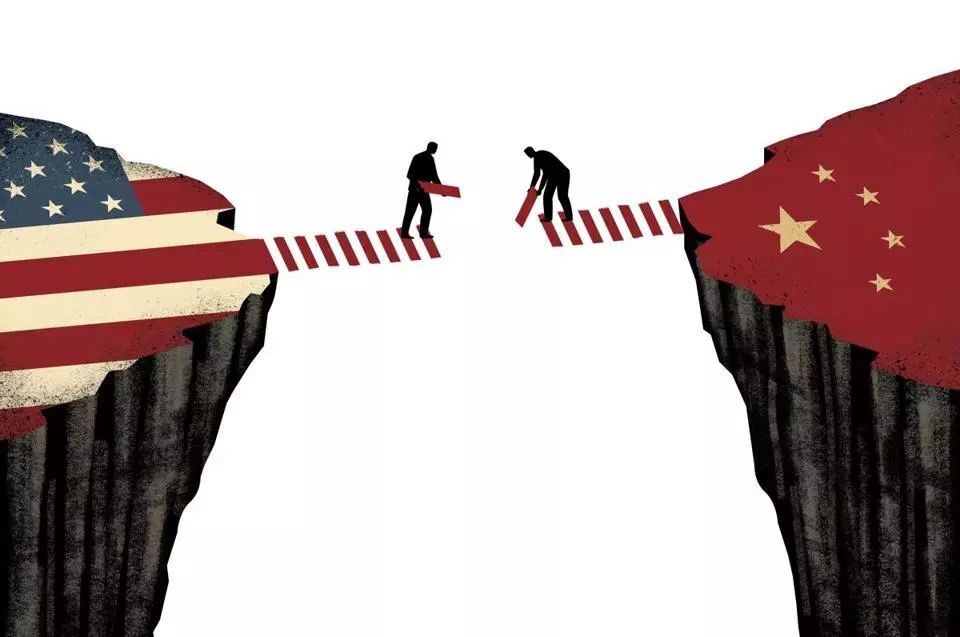The United Kingdom finally pulled out of the European Union. Brexit is another sign of the transformation of globalization. Even though the process of globalization lacked strong foundations right from its birth, it is moving rapidly and hastily towards transformation and even suspension. Last decade, no one could imagine and envisage such an outcome for globalization.
This opinion seeks not to declare the termination or suspension of globalization because it is moving ahead as a social phenomenon on the basis of developments in technology, economy, society and culture without accessibility by political players. And the global village has been realized in practice and the entry to the virtual and cyber space would reveal its dimensions more than before; however, the main point is that rivalry between China and the United States over the creation of a new bipolar system or even the world’s next unipolar world has resulted in transformation of globalization.
Since the Second World War, the United States of America has turned into the big player of the international arena and even the Soviet Union was no successful to survive against the United States thanks to its internal contradictions and ultimately collapsed. The disintegration of the former Soviet Union signaled the weakening of rivalry between two big camps on the basis of the Socialism and Capitalism ideologies. Many political thinkers and scholars even talked about the end of history in liberal Capitalism. This perspective was accompanied by the process of globalization which occurred as the result of developments in technology, communication and information and entailed removal of conventional boundaries. Global identity groups, transnational companies, non-centralized production with assembly facilities across the world and the interconnectedness of cultures are just examples of the outcome of globalization.
Until the mid 2000s, this process was pursued alongside the project of globalization and with the World Trade Organization playing a profound role. However, the rise of China as an emerging power meant that the end of history may not be equal to the image political thinkers and scholars such as Francis Fukuyama had portrayed.
The power of China gradually increased. It managed to send its dragon of economy and finance on the horse of the rules and regulations of global trade (freedom of trade, removal of tariffs and customs obstacles) to all over the world. However, after Trump came to power in the White House, economic war between China and the United States and later the United States and the European Union spread signals in contradiction with globalization and multilateralism.
Of course, before Trump, traces of inclination to rightism and rightists and some sort of economic nationalism were spotted in some parts of Europe which was reflected more in the prevention of the flock of migrants from the third world countries. However, the confrontation between China and the United States was spotlighted in the vision of “Made in China 2025” which signaled the expansion of the dominance of China over the entire global economy. Therefore, globalization was transformed into a rivalry on the basis of Americanization vs. Chinanization of the world.
Class developments in various countries of the world and increasing weight of classes known as non-urban middle class which is more concerned with economic problems and economic growth rather than cultural and political developments have also played a role in heightened confrontation between Americanization vs. Chinanization of the world. However, the point beyond this confrontation is that big players even if they have non-for-profit plans, whenever their interests are threatened, they will play under the table resorting to their power of bargaining.
Even though the project of globalization has undergone transformation and its true nature i.e. competition over similarization has intensified, a remarkable portion of studies related to identity challenges in the contemporary world has focused its attention on the issue of globalization and entry into the age of information. Migration, re-definition of identity on the basis of global criteria, membership in international and transnational groups such as environmentalists and global social activism are the main important issues which have been studied. Movements and actions based on the re-defining of identity and dynamism of transformation of economic and political systems will not stop in one point and future cannot be predicted.
Of course, there is the possibility of predicting various scenarios in future and the main feature and advantage of this scenario creating is its preparedness for various possibilities in future or the selection of the optimum scenarios compared to other scenarios. However, the non-certainty nature of social systems is a big obstacle for achieving linear and constant patterns for social orders transformation or even prediction of divergence or convergence in social orders. The world’s previous experience in the Second World War resulted in the United States rising as a power from among efforts to Germanize or Anglosize the world. However, the rivalry between Americanization and Chinanization may result in the emergence of a third power or it may convert one of these two powers to a player with the highest bargaining power.










0 Comments